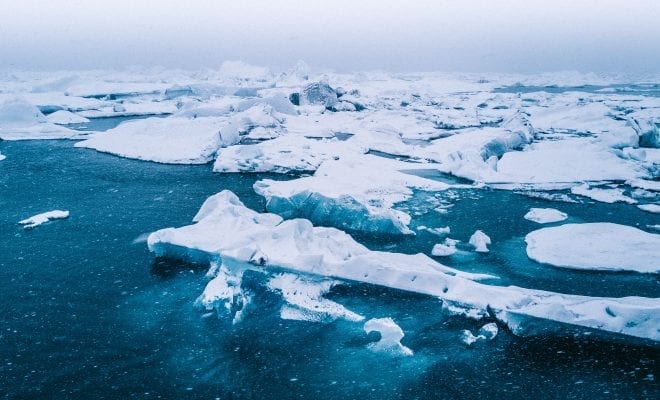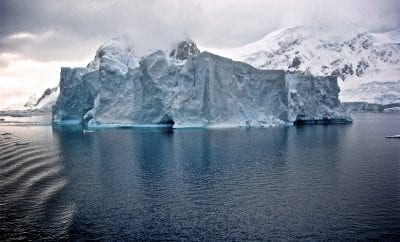
News
The Arctic is Undergoing Drastic Changes Due to Climate Change
The National Oceanic and Atmospheric Administration released its annual Arctic Report Card on Tuesday, detailing the drastic changes the region is experiencing due to climate change. According to its findings, wildlife populations are decreasing, sea ice is melting, and temperatures in the region are steadily on the rise.
The most alarming change, however, is the fact that the usually permanently frozen soil that rings the region of the arctic is now beginning to melt, unleashing substantially more carbon than usual. This flood of carbon in the atmosphere is now contributing to the acceleration of rising temperatures, threatening life in the arctic, including indigenous populations.
This marks the first time the Arctic Report Card has included a section on how the indigenous people of the Arctic could be affected by climate change. Due to the loss of sea ice, major changes are occurring within the ecosystem, negatively impacting coastal communities who rely on sea life to survive.
The sea ice also serves as a crucial means of travel for these communities who utilize the solid surfaces to reach the areas they hunt in. With large swaths of this ice melting, they are beginning to lose a vital aspect of their day-to-day lives that they rely on for survival.
The report notes indigenous elders as saying “[i]n a warming Arctic, access to our subsistence foods is shrinking and becoming more hazardous to hunt and fish. At the same time, thawing permafrost and more frequent and higher storm surges increasingly threaten our homes, schools, airports, and utilities.”
The report warns that the permafrost in the Arctic contains an estimated 10 times more carbon than the Amazon. As it begins to thaw, the sheer amount of carbon being released into the atmosphere is actually greater than the amount the region’s plants are taking in, meaning the Arctic is now actively contributing to the climate crisis. If unchecked, these carbon emissions would total 300-600 million tons each into the atmosphere.





1 Comment